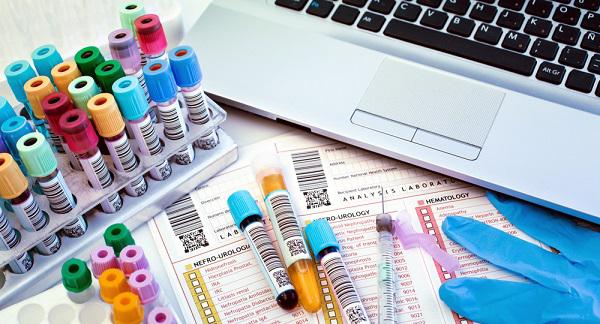
What are cord blood testing and cord blood banking?
Cord blood is the blood left in the umbilical cord after a baby is born. The umbilical cord is the rope-like structure that connects a mother to her unborn baby during pregnancy. It contains blood vessels that bring nourishment to the baby and remove waste products. After a baby is born, the cord is cut with a small piece remaining. This piece will heal and form the baby's belly button.
Cord blood testing
Once the umbilical cord has been cut, a health care provider may take a sample of blood from the cord for testing. These tests may measure a variety of substances and check for infections or other disorders.
Cord blood banking
Some people want to bank (save and store) blood from their baby's umbilical cord for future use in treating diseases. The umbilical cord is full of special cells called stem cells. Unlike other cells, stem cells have the ability to grow into many different types of cells. These include bone marrow, blood cells, and brain cells. Stem cells in cord blood can be used to treat certain blood disorders, including leukemia, Hodgkin disease, and some types of anemia. Researchers are studying whether stem cells can also treat other types of diseases.
What is cord blood testing used for?
Cord blood testing may be used to:
- Measure blood gases. This helps to see if a baby's blood has a healthy level of oxygen and other substances.
- Measure bilirubin levels. Bilirubin is a waste product made by the liver. High bilirubin levels can be a sign of a liver disease.
- Perform a blood culture. This test may be done if a provider thinks a baby has an infection.
- Measure different parts of the blood with a complete blood count. This is done more often on premature babies.
- Check for signs of a baby's exposure to illegal or misused prescription drugs a mother may have taken during pregnancy. Umbilical cord blood can show signs of a variety of drugs, including opiates; such as heroin and fentanyl; cocaine; marijuana; and sedatives. If any of these drugs are found in cord blood, a health care provider can take steps to treat the baby and help avoid complications such as developmental delays.
What is cord blood banking used for?
You may want to consider banking your baby's cord blood if you:
- Have a family history of a blood disorder or certain cancers. Your baby's stem cells will be a close genetic match to his or her sibling or other family member. The blood may be helpful in treatment.
- Want to protect your child from a future illness, although it's unlikely that a child can be treated with his or her own stem cells. That's because a child's own stem cells may have the same problem that led to the disease in the first place.
- Want to help others. You can donate your baby's cord blood to a facility that provides lifesaving stem cells to patients in need.
How is cord blood collected?
Soon after your baby is born, the umbilical cord will be cut to separate the baby from your body. The cord used to be routinely cut right after birth, but leading health organizations now recommend waiting at least one minute before cutting. This helps improve blood flow to the baby, which may have long-term health benefits.
After the cord is cut, a health care provider will use a tool called a clamp to stop the cord from bleeding. The provider will then use a needle to withdraw blood from the cord. The cord blood will be packaged and either sent to a lab for testing or to a cord blood bank for long-term storage.
How is cord blood banked?
There are two types of umbilical cord blood banks.
- Private banks. These facilities save your baby's cord blood for your family's personal use. These facilities charge a fee for collection and storage. However, there is no guarantee the cord blood will be useful to treat your baby or a member of your family in the future.
- Public banks. These facilities use cord blood to help others and to do research. Cord blood in public banks may be used by anyone who needs it.
Is there any preparation needed for cord blood testing or banking?
There are no special preparations needed for cord blood testing. If you want to bank your baby's cord blood, talk to your health care provider early in your pregnancy. This will give you time to get more information and review your options.
Are there any risks to cord blood testing or banking?
There is no risk to cord blood testing. Cord blood banking at a private facility can be very expensive. The cost is usually not covered by insurance.
What do cord blood test results mean?
Cord blood test results will depend on what substances were measured. If results were not normal, talk to your health care provider to see if your baby needs treatment.
Is there anything else I need to know about cord blood testing or banking?
Unless you have a family history of certain blood disorders or cancers, it's unlikely your baby's cord blood will help your baby or your family. But research is ongoing and the future of using stem cells for treatment looks promising. Also, if you save your baby's cord blood at a public cord bank, you may be able to help patients right now.
For more information on cord blood and/or stem cells, talk to your health care provider.
This health news has been brought to you by the publishers of Health Reviews, Tips and News Website. Visit today for great health tips and reviews.



No comments
Post a Comment